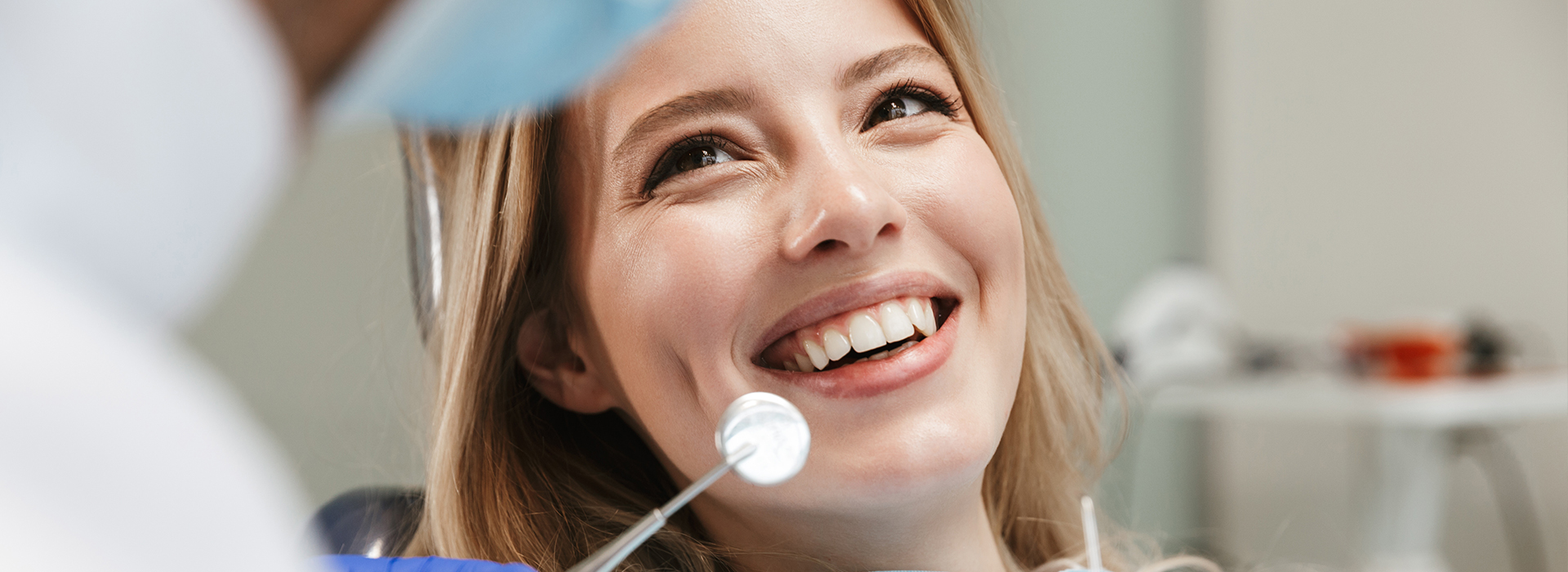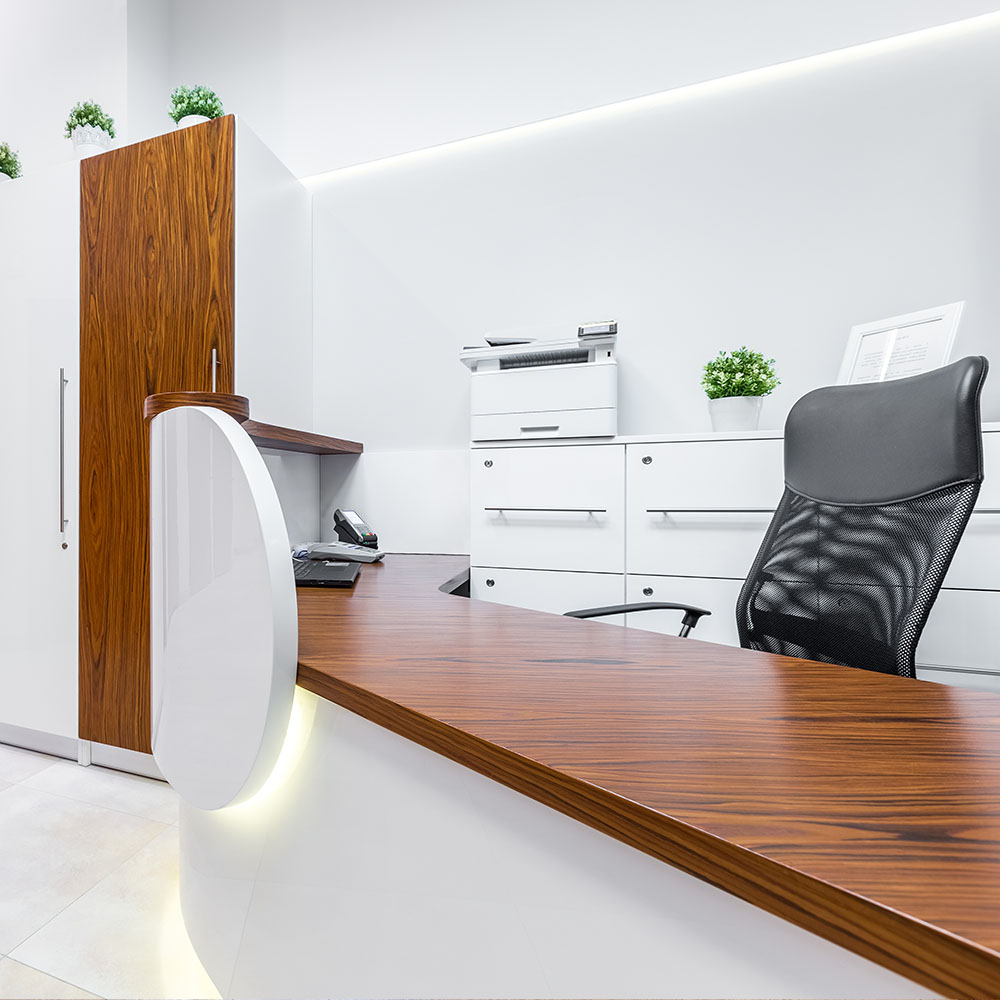New Patients
Existing Patients


Keeping a bright, healthy smile starts at home with good brushing and flossing, but even the most careful patients can miss tight spaces and slow-forming deposits. Professional dental cleanings remove hardened buildup and bacterial film that ordinary brushing can’t fully address. Beyond aesthetics, these appointments are a preventive foundation—helping to keep gums healthy, slowing the progression of decay, and giving your dentist a chance to spot emerging issues early.
Everyday oral care disrupts and removes much of the soft plaque that accumulates on teeth, but minerals in saliva can harden residual plaque into tartar (calculus) where toothbrush bristles cannot reach. Tartar adheres to tooth surfaces and along the gumline, creating a rough platform where bacteria thrive. Professional cleanings eliminate this hardened buildup and reduce the bacterial load that contributes to cavities and gingival inflammation.
Maintaining a predictable schedule of professional cleanings supports gum health and helps prevent the development of more advanced periodontal problems. During these visits, your dental team evaluates the condition of your teeth and soft tissues, looking for signs of inflammation, recession, or abnormal wear—early warnings that let us intervene before treatment becomes more complex.
Regular cleanings are also important for systemic health. Research links untreated oral inflammation to broader health concerns, so keeping the mouth healthy benefits the whole body. For patients with medical conditions that affect oral health, cleanings become part of a coordinated plan to protect both dental and overall well-being.
A professional cleaning begins with a careful visual exam and a review of any changes since your last visit. Your hygienist or dentist will assess gum tissue health, look for signs of plaque and tartar accumulation, and note areas where teeth may be at increased risk for decay. This evaluation shapes the focus and intensity of the cleaning that follows.
Cleaning commonly combines mechanical scaling and ultrasonic technology. Hand instruments allow precise removal of deposits from tooth surfaces and just below the gumline, while an ultrasonic scaler uses gentle vibrations and a water spray to dislodge tougher deposits and flush away debris. Using both approaches together helps ensure thorough removal while keeping the experience efficient.
After scaling, teeth are typically polished to smooth microscopic roughness that can trap staining compounds and plaque. The hygienist will then floss to remove any remaining debris between teeth and may apply topical fluoride or other protective agents based on your individual risk profile. Throughout the appointment, the clinician will explain what they are doing and why, so patients understand the steps taken to protect their oral health.
Many patients worry that a cleaning will be uncomfortable, especially if they have sensitive teeth or tender gums. Modern dental teams prioritize comfort and use techniques to make cleanings as gentle as possible. Slow, methodical instrumentation, frequent rinsing, and careful positioning can reduce discomfort and help the clinician work precisely without causing unnecessary irritation.
When sensitivity does occur, topical desensitizing agents or local anesthetic can be used selectively to minimize pain and allow a thorough cleaning to be completed in one visit. For patients with dental anxiety, the team can provide calming communication, short breaks during the appointment, and a predictable plan so each step is clear and manageable.
If you have specific concerns—such as recent dental work, a sensitive tooth, or a strong gag reflex—mention them when scheduling or when you arrive. Your dental team will tailor the appointment to your needs, balancing effectiveness with the strategies that keep you comfortable and relaxed throughout the visit.
Polishing after scaling removes surface stains and smooths enamel so teeth look and feel cleaner. While polishing enhances appearance, its primary benefit is to reduce the micro-roughness where plaque can collect. Hygienists may also apply targeted treatments to strengthen enamel and lower sensitivity when appropriate for a patient’s needs.
Beyond in-office care, preventive success depends on effective daily habits. During or after your cleaning, the hygienist will review your brushing and flossing technique and recommend tools or products that suit your mouth—electric brushes, interdental brushes, floss types, or specific toothpaste formulations. Small technique adjustments often yield big improvements in plaque control between visits.
Dietary patterns and lifestyle choices also influence how quickly stains and deposits return. Simple changes—like limiting highly acidic or sugary beverages, rinsing after snacking, and using a straw for staining drinks—can reduce buildup and extend the benefits of a professional cleaning. Personalized advice from your dental team helps you prioritize the changes that matter most for your smile.
A dental cleaning is more than a standalone procedure; it’s a recurring checkpoint in a larger care plan. For patients with gum disease, more frequent maintenance visits and coordinated periodontal therapy may be recommended. For others, cleanings serve as routine maintenance that supports restorative or cosmetic work by keeping tissues healthy and stable.
At the office of Joanna Tricorache, DDS, cleanings are part of a patient-centered approach that emphasizes prevention, clear communication, and individualized treatment plans. Whether you’re building a long-term maintenance schedule or addressing a specific concern, your hygienist and dentist collaborate to ensure each cleaning supports your broader dental goals.
Scheduling regular cleanings helps create a reliable record of your oral health, making it easier to spot subtle changes and respond promptly. That continuity of care—combined with practical home-care guidance and attentive clinical follow-up—gives patients the best chance of preserving natural teeth and enjoying a comfortable, confident smile for years to come.
To learn more about how professional dental cleanings can support your oral health, please contact us for additional information. We’re happy to answer questions and help you plan the approach that’s right for your smile.

Ready to schedule your next dental appointment or have questions about our services?
Contacting Joanna Tricorache, DDS is easy! Our friendly staff is available to assist you with scheduling appointments, answering inquiries about treatment options, and addressing any concerns you may have. Whether you prefer to give us a call, send us an email, or fill out our convenient online contact form, we're here to help. Don't wait to take the first step towards achieving the smile of your dreams – reach out to us today and discover the difference personalized dental care can make.